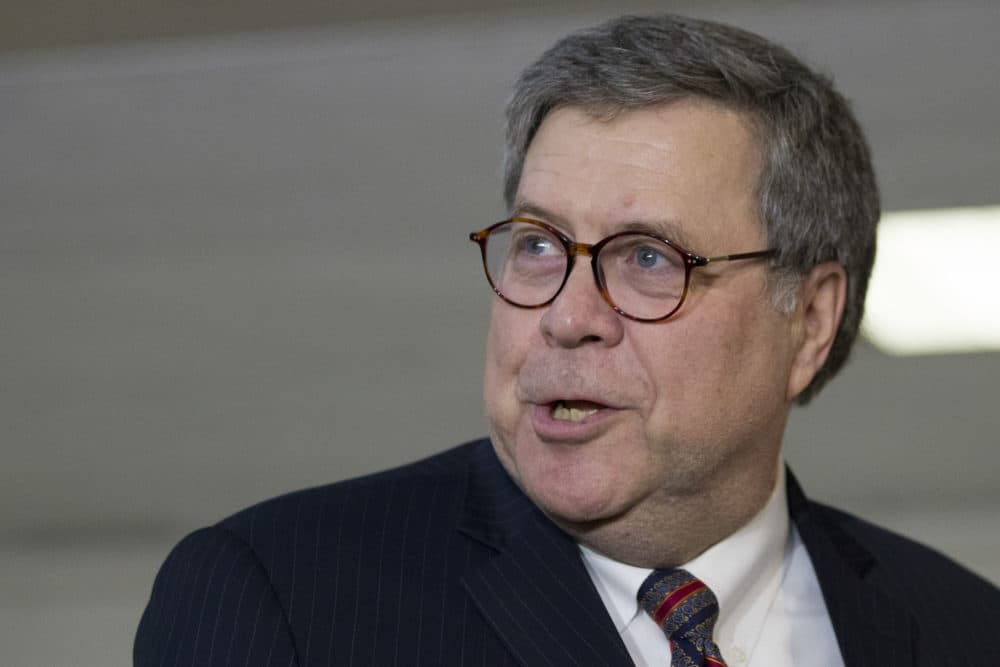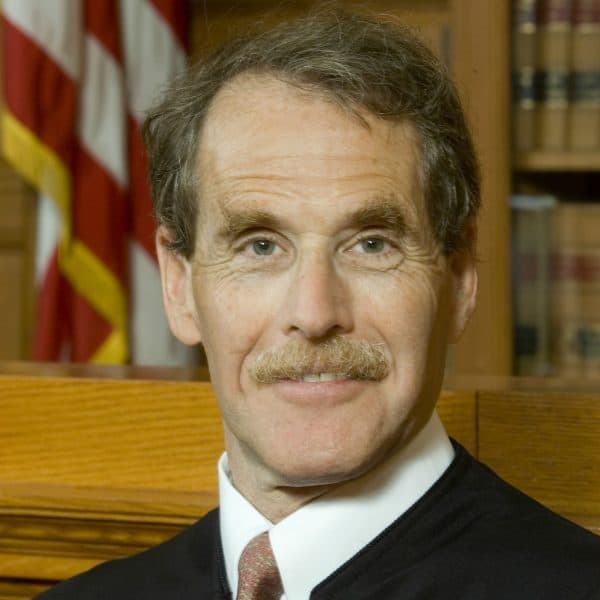Advertisement
Commentary
William Barr Is A Stellar Candidate For AG — Except When It Comes To Issues Involving Trump

Imagine you are a longtime Washington insider who has been nominated for a major cabinet seat by the president. The position in question is that of attorney general. Then, assume that you have failed to call certain U.S. senators on the Judiciary Committee to see if they would like to meet you or ask any questions. Some of these senators overlook your poor manners and invite you to get together before the committee begins hearings on your nomination.
Does such an invitation present a difficult decision? Apparently so, if your name is William Barr.
After his nomination was announced in December, Barr declined to meet with Sens. Amy Klobuchar and Richard Blumenthal despite their willingness to give him the opportunity he should have sought in the first place.
Seeking an excuse, Barr relied on the current government shutdown for his inability to appear. Klobuchar, who knows how to use humor for effect, posted a tweet that began: "Memo to whoever is in charge. Last time I checked AG nominee Barr was not a furloughed worker…,” and ended with “Will serve coffee.”
After a few more tweets and some on-air interviews by Klobuchar and Blumenthal, Barr eventually met with Democratic senators five days before his hearing, now scheduled for this Tuesday.
Barr knew better all along. His extensive resume includes clerking for Judge Malcolm Wilkey of the U.S. Court of Appeals for the D.C. Circuit, serving as deputy assistant director for legal policy at the Reagan White House, a Justice Department appointment by President George H.W. Bush as assistant attorney general for the Office of Legal Counsel, posts as deputy attorney general, acting attorney general and a former stint as U.S. attorney general from 1991 to 1993.
So what can we conclude from this breach of protocol that, unsurprisingly, had to be reversed?
First, Klobuchar’s greeting to “whoever is in charge” reflects the reality that these occasions are stage-managed by administration officials; someone decided that private conversations would not enable Barr to equivocate as easily about Robert Mueller’s future independence as he could in ritual exchanges of bromides during a public hearing. While the decision was not Barr’s alone, a seasoned lawyer and nominee for attorney general should know enough to override incompetent handlers.
Advertisement
Another part of the answer is found in Barr’s unsolicited public audition for the job. Barr was a private citizen last June when he wrote a 20-page memo and delivered it to the Justice Department. He titled it: “Mueller’s ‘Obstruction’ Theory.” The memo begins with the admission that Barr is “in the dark about many facts.” Undeterred, he then proceeded to spin a legally indefensible theory.
The gist of Barr’s memo is that the crime of obstruction requires the commission of an act that is independently a crime. Indictments for obstruction often include separate criminal acts such as, for example, bribing a witness. But the standalone criminality of an act intended to obstruct “the due administration of justice” (in the language of the statute) is not an element of the offense. Barr, our once and presumably future attorney general, wants to dilute the deterrent effect of the obstruction statute by adding a condition to the law that does not exist.
As a simple example, when the target of a grand jury investigation makes a donation to a charity favored by the prosecutor seeking an indictment, it is exclusively the intent of that otherwise perfectly legal act that makes the difference. Motivation is key. While improper motivation is obviously harder to prove without independent wrongdoing, a prosecutor can do so with circumstantial evidence.
In Trump’s case, circumstantial evidence abounds: No inherent crime was committed when the president fired the FBI director. But Trump conferred an unintended gift on the special counsel when he asserted, among contradictory claims during an interview with Lester Holt, that he fired Comey because of “this Russia thing.” Similarly, there are numerous reported conversations with Comey and with White House counsel Don McGahn in which Trump sought to protect Michael Flynn, and fire Robert Mueller.
Barr’s memo asserts, contrary to law, that Trump’s motives are irrelevant. Is it any wonder that Barr’s memo and Barr himself found favor with the White House? Is it any more surprising that Barr was reluctant to have open-ended conversations with Senators Klobuchar (Chicago Law School, former prosecutor) and Blumenthal (Yale Law School, former U.S. attorney and Connecticut attorney general)?
Before acceding to Klobuchar, the White House and Barr had calculated that the Senate’s Republican majority would assure Barr’s confirmation, and so he could just ignore the Democrats. Barr’s credentials and experience, plainly superior to both his predecessor Jeff Sessions and acting Attorney General Matthew Whitaker, would also provide ammunition. He further bolstered his case with assurances, reported through Lindsey Graham, that he would preserve the independence of the Mueller investigation.
Barr’s eventual meetings with Klobuchar and other Democrats provided insight into his reticence, but little confidence about his intentions. He apparently hedged on the protective assurances described by Graham and, somewhat ominously, was equivocal about assuring full public disclosure of the Mueller report. More broadly, he reaffirmed a belief that congressional oversight encroaches on the executive branch’s broad authority.
Barr’s memo asserts, contrary to law, that Trump’s motives are irrelevant. Is it any wonder that Barr’s memo and Barr himself found favor with the White House?
His written testimony before the Judiciary Committee is largely anodyne, with several troubling exceptions. Chief among these is his reference to “…immigrants crashing through the back door” when he knows that overstaying visas is the predominant source of undocumented residents. This sop to Trump is paired with a pledge to “protect the integrity of elections” that omits any mention of voter suppression or gerrymandering.
On the positive side, Barr has administrative and legal skills that should make him a capable attorney general, at least on issues not involving Trump. And he probably realizes that there is little he can do at this late stage to protect the president from evidence of campaign finance violations or conspiracies with foreign governments.
The bad news: Once confirmed, Barr can thwart prosecution of an obstruction charge unsupported by a separate crime, no matter how strong the evidence of Trump’s intent. Further, he may well formulate other theories protective of Trump. And, notwithstanding his audition memo, he will not recuse himself from overseeing the special counsel probe. To paraphrase Groucho Marx, no one belongs in this administration who actually wants to be a member.
